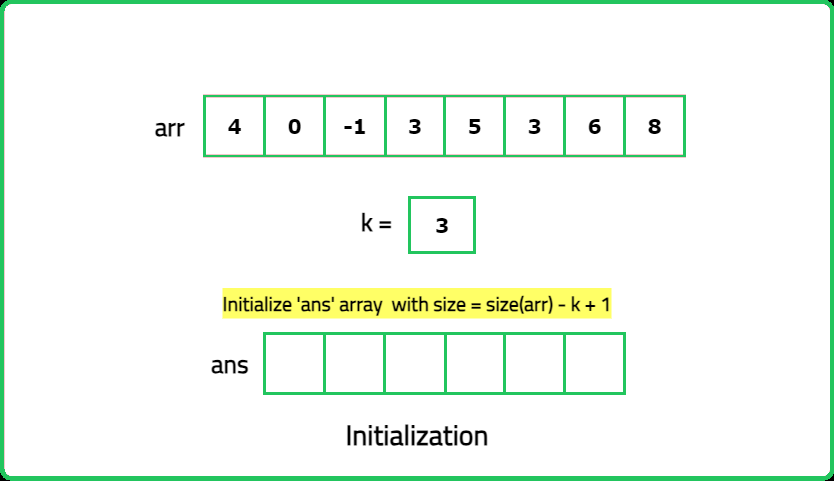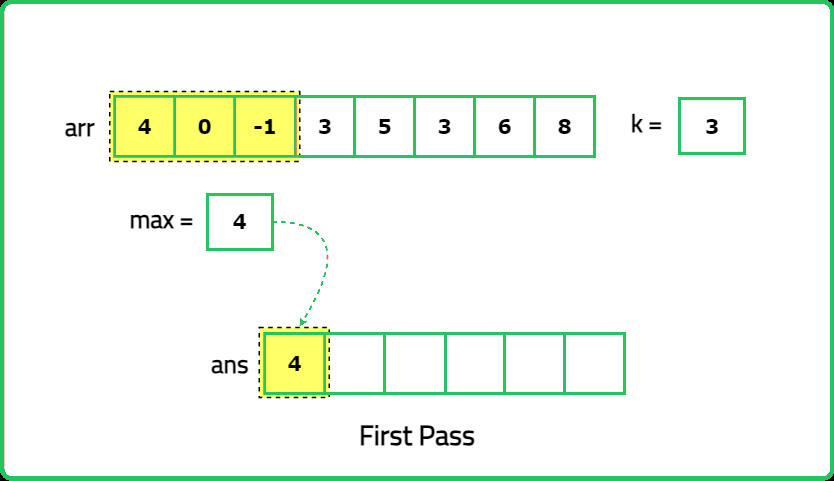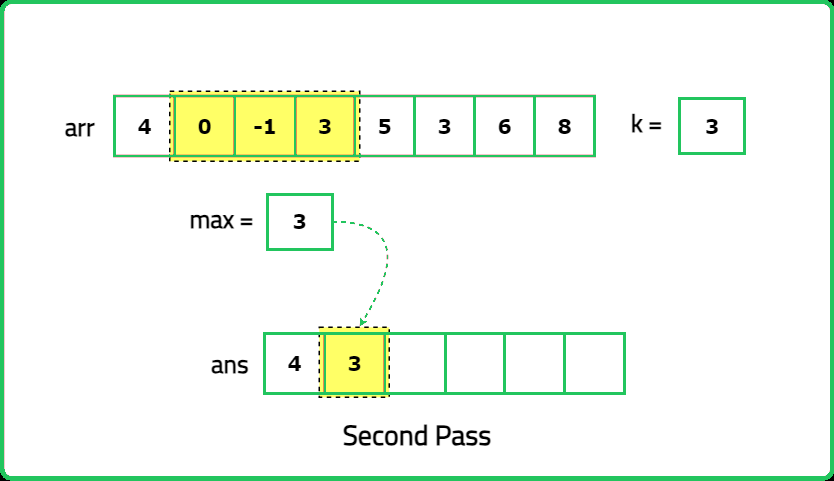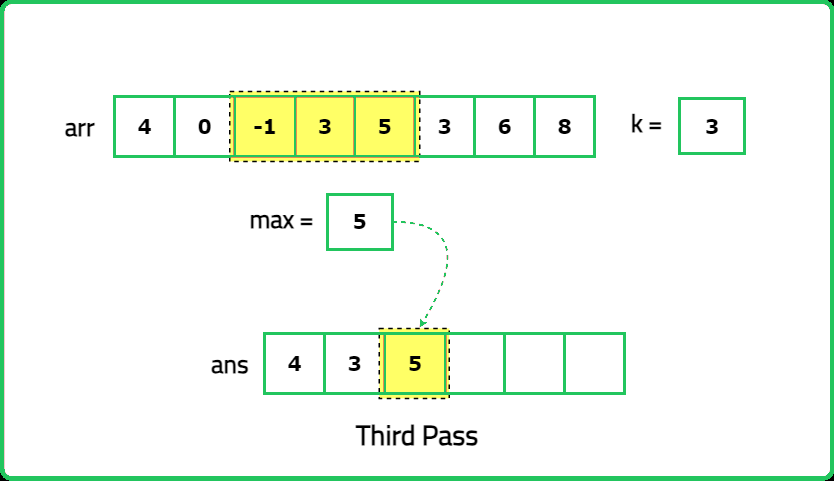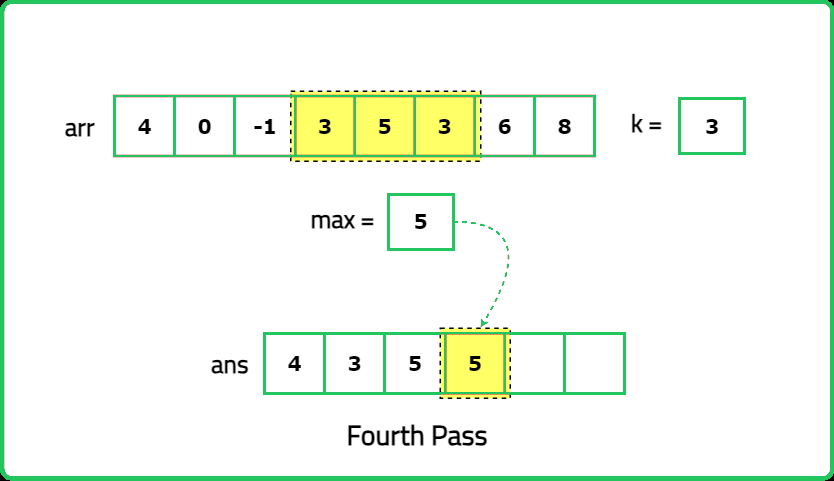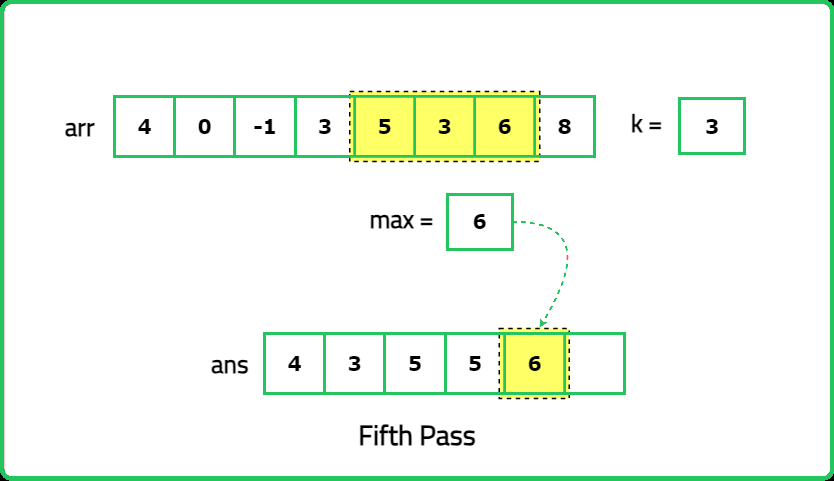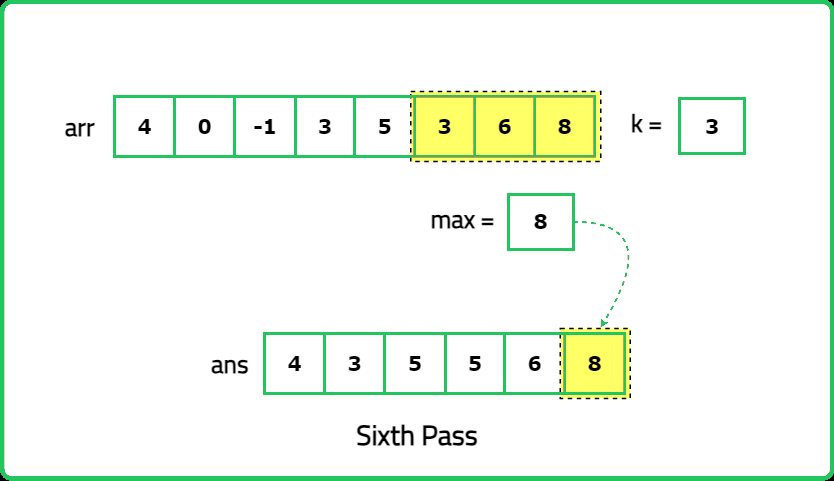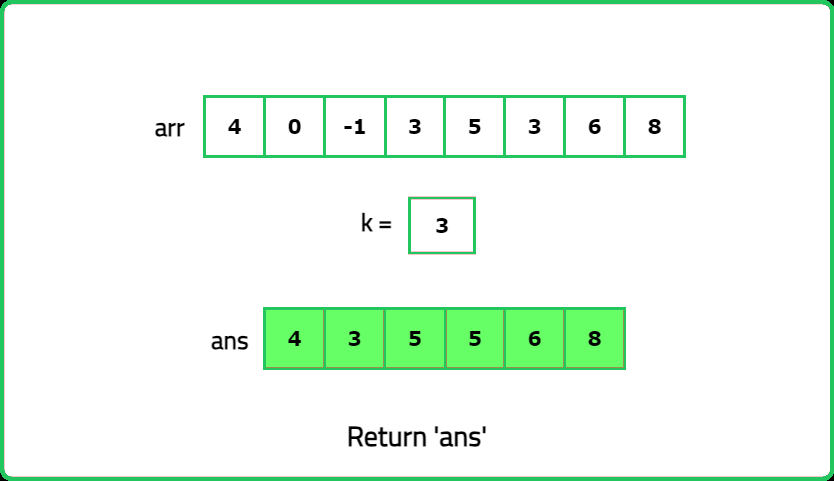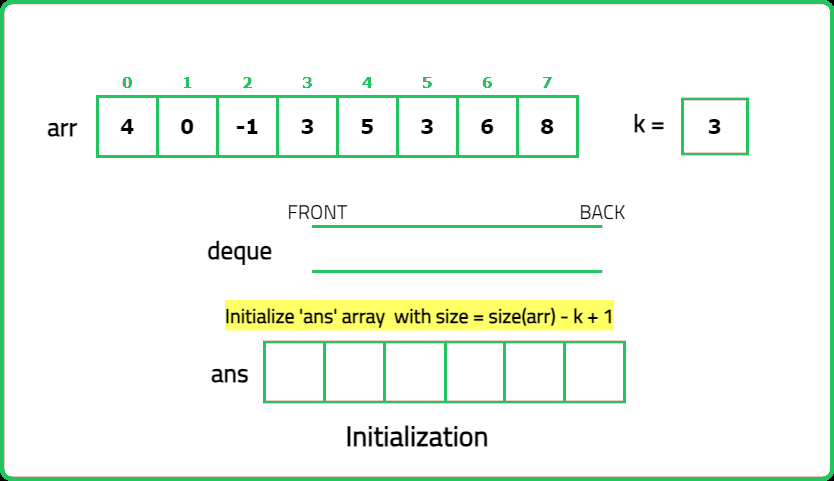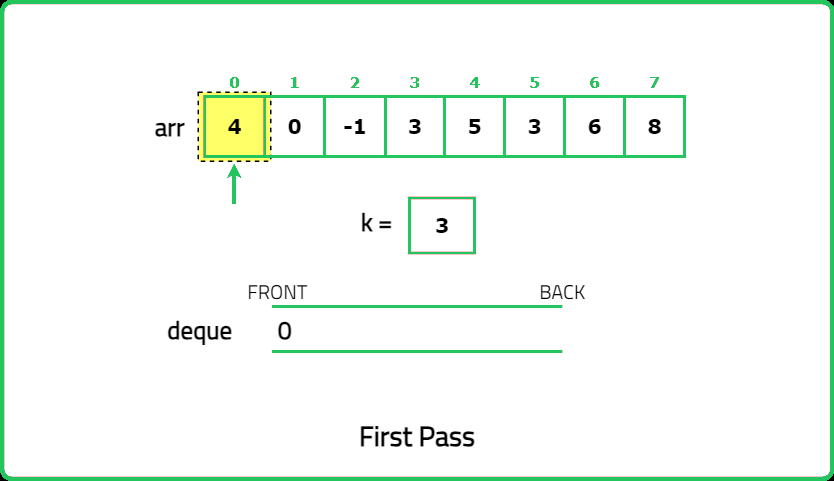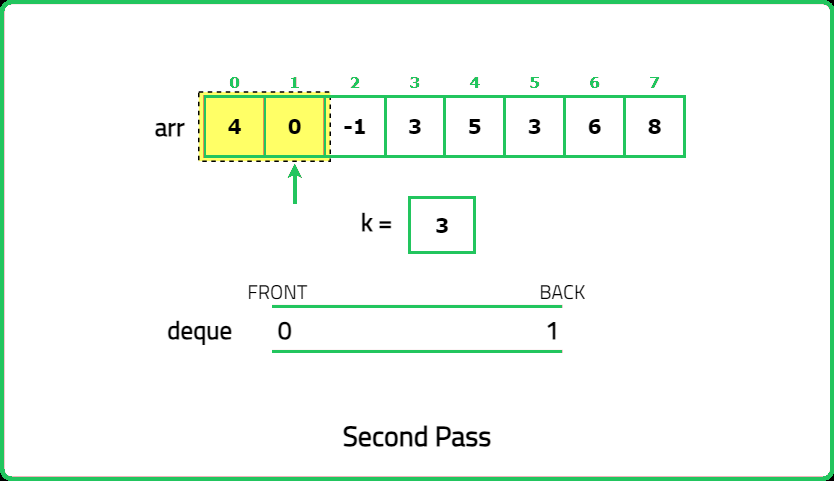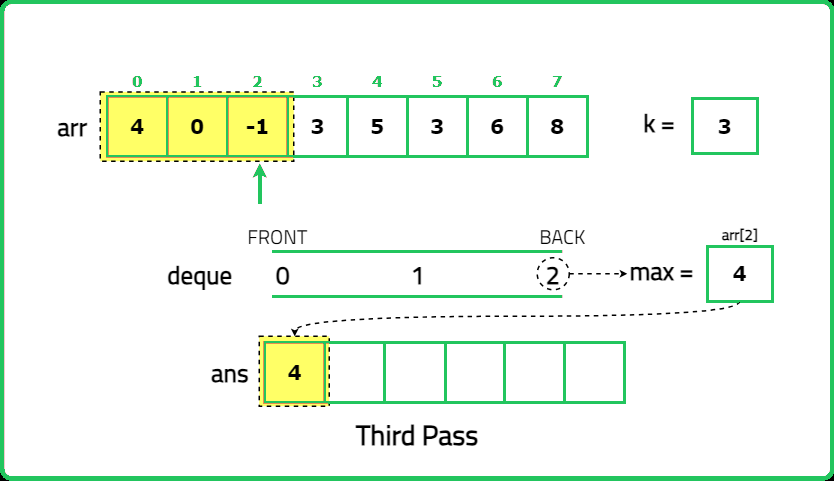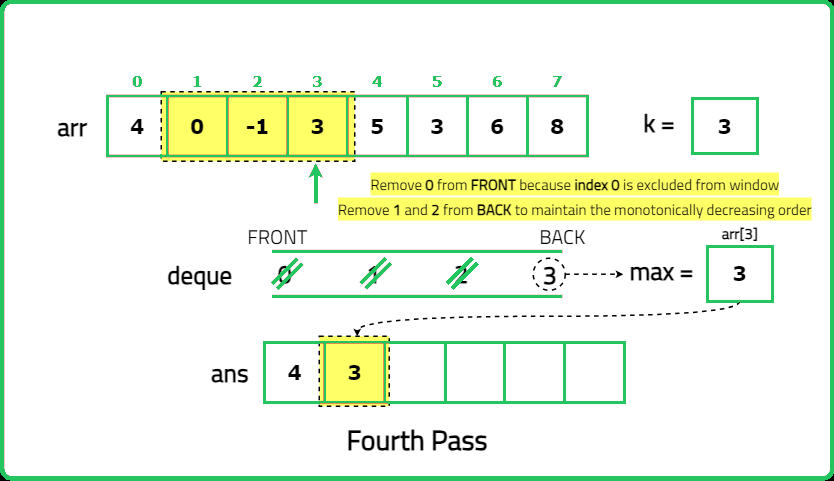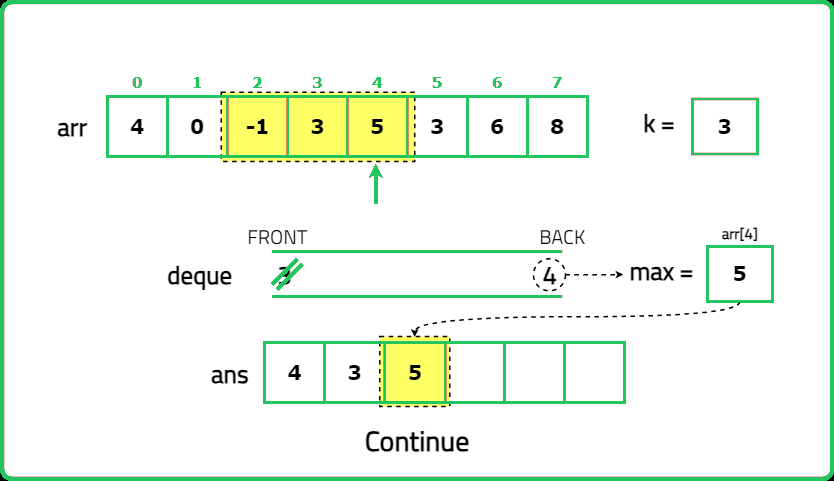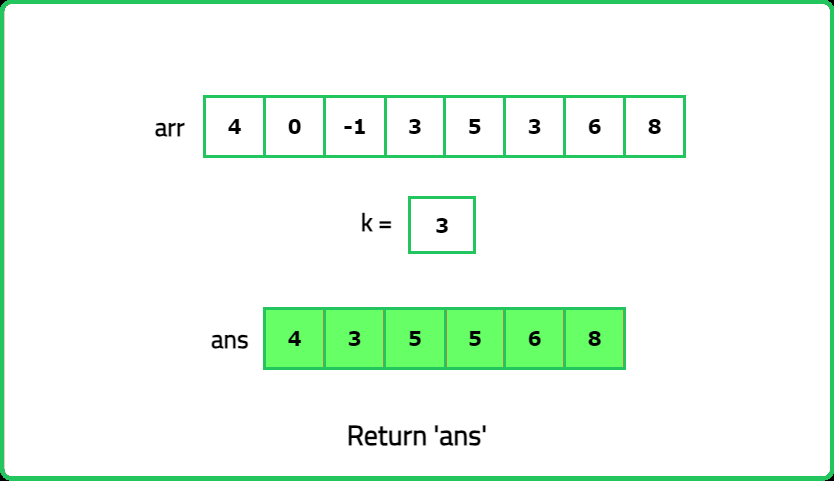123456789101112131415161718192021222324252627282930313233343536373839404142434445464748495051525354
#include <bits/stdc++.h>
using namespace std;
class Solution {
public:
// Function to get the maximum sliding window
vector<int> maxSlidingWindow(vector<int> &arr, int k) {
int n = arr.size(); // Size of array
// To store the answer
vector<int> ans;
/* Traverse on the arrary
for valid window */
for(int i=0; i <= n-k; i++) {
// To store the maximum of the window
int maxi = arr[i];
// Traverse the window
for(int j=i; j < i+k; j++) {
// Update the maximum
maxi = max(maxi, arr[j]);
}
// Add the maximum to the result
ans.push_back(maxi);
}
// Return the stored result
return ans;
}
};
int main() {
vector<int> arr = {4, 0, -1, 3, 5, 3, 6, 8};
int k = 3;
/* Creating an instance of
Solution class */
Solution sol;
/* Function call to get the
maximum sliding window */
vector<int> ans = sol.maxSlidingWindow(arr, k);
cout << "The maximum elements in the sliding window are: ";
for(int i=0; i < ans.size(); i++) {
cout << ans[i] << " ";
}
return 0;
}
123456789101112131415161718192021222324252627282930313233343536373839404142434445464748495051
import java.util.*;
class Solution {
// Function to get the maximum sliding window
public List<Integer> maxSlidingWindow(int[] arr, int k) {
int n = arr.length; // Size of array
// To store the answer
List<Integer> ans = new ArrayList<>();
/* Traverse on the arrary
for valid window */
for(int i = 0; i <= n - k; i++) {
// To store the maximum of the window
int maxi = arr[i];
// Traverse the window
for(int j = i; j < i + k; j++) {
// Update the maximum
maxi = Math.max(maxi, arr[j]);
}
// Add the maximum to the result
ans.add(maxi);
}
// Return the stored result
return ans;
}
public static void main(String[] args) {
int[] arr = {4, 0, -1, 3, 5, 3, 6, 8};
int k = 3;
/* Creating an instance of
Solution class */
Solution sol = new Solution();
/* Function call to get the
maximum sliding window */
List<Integer> ans = sol.maxSlidingWindow(arr, k);
System.out.println("The maximum elements in the sliding window are: ");
for(int num : ans) {
System.out.print(num + " ");
}
}
}
123456789101112131415161718192021222324252627282930313233343536373839
class Solution:
# Function to get the maximum sliding window
def maxSlidingWindow(self, arr, k):
n = len(arr) # Size of array
# To store the answer
ans = []
# Traverse on the array for valid window
for i in range(n - k + 1):
# To store the maximum of the window
maxi = arr[i]
# Traverse the window
for j in range(i, i + k):
# Update the maximum
maxi = max(maxi, arr[j])
# Add the maximum to the result
ans.append(maxi)
# Return the stored result
return ans
# Creating an instance of Solution class
sol = Solution()
arr = [4, 0, -1, 3, 5, 3, 6, 8]
k = 3
# Function call to get the maximum sliding window
ans = sol.maxSlidingWindow(arr, k)
print("The maximum elements in the sliding window are: ")
for num in ans:
print(num, end=" ")
1234567891011121314151617181920212223242526272829303132333435363738394041424344454647
class Solution {
// Function to get the maximum sliding window
maxSlidingWindow(arr, k) {
let n = arr.length; // Size of array
// To store the answer
let ans = [];
/* Traverse on the arrary
for valid window */
for(let i = 0; i <= n - k; i++) {
// To store the maximum of the window
let maxi = arr[i];
// Traverse the window
for(let j = i; j < i + k; j++) {
// Update the maximum
maxi = Math.max(maxi, arr[j]);
}
// Add the maximum to the result
ans.push(maxi);
}
// Return the stored result
return ans;
}
}
let arr = [4, 0, -1, 3, 5, 3, 6, 8];
let k = 3;
/* Creating an instance of
Solution class */
let sol = new Solution();
/* Function call to get the
maximum sliding window */
let ans = sol.maxSlidingWindow(arr, k);
console.log("The maximum elements in the sliding window are: ");
for(let num of ans) {
console.log(num + " ");
}
